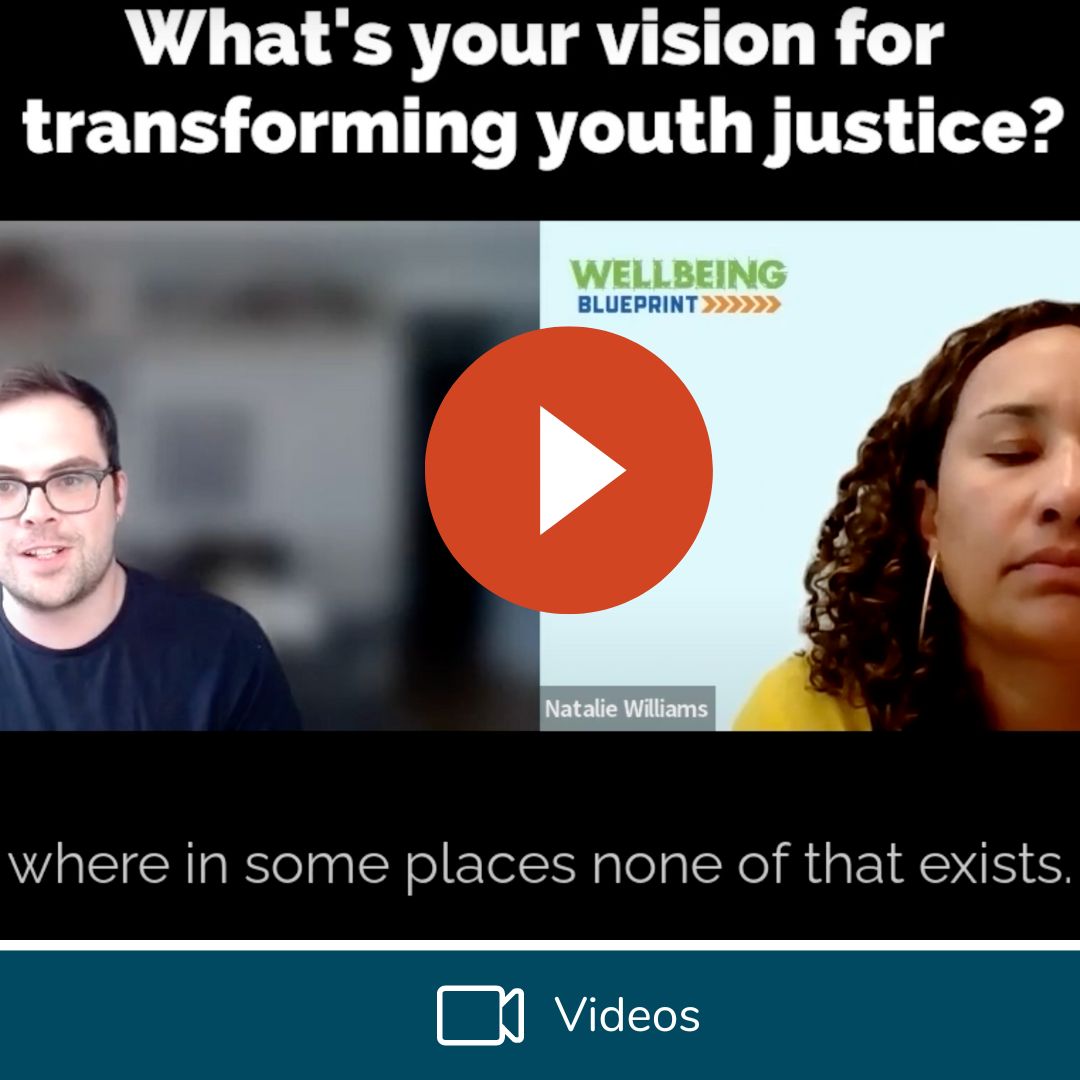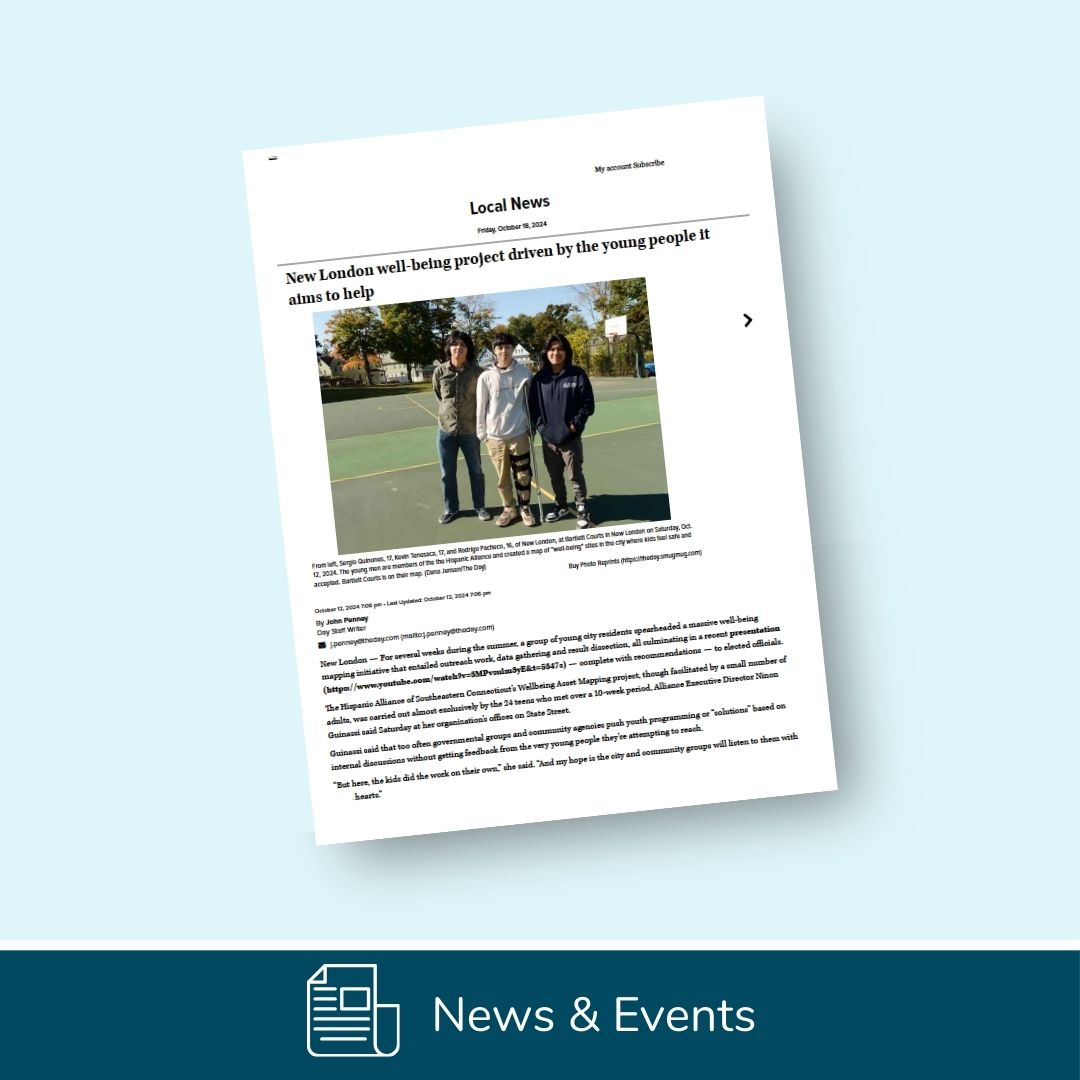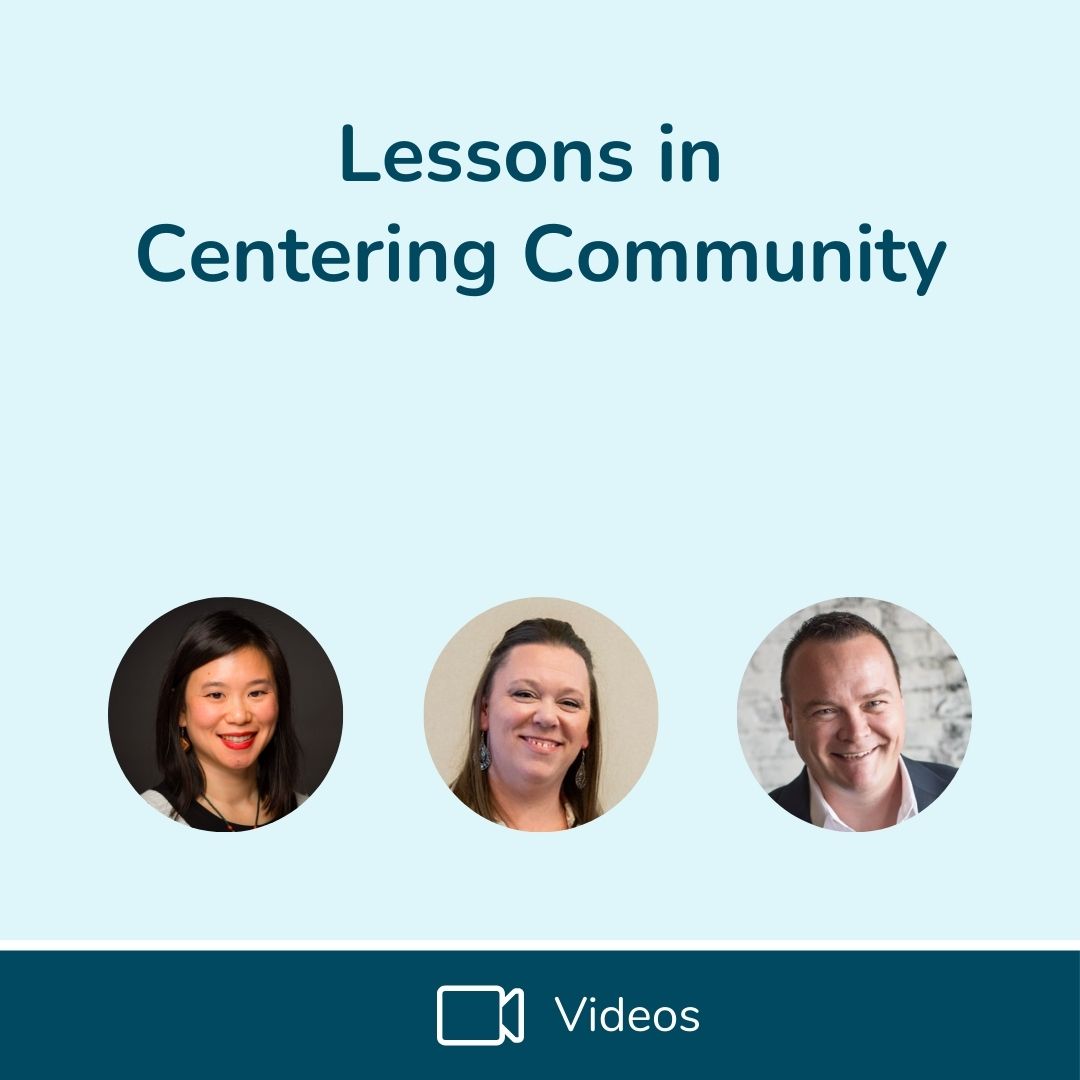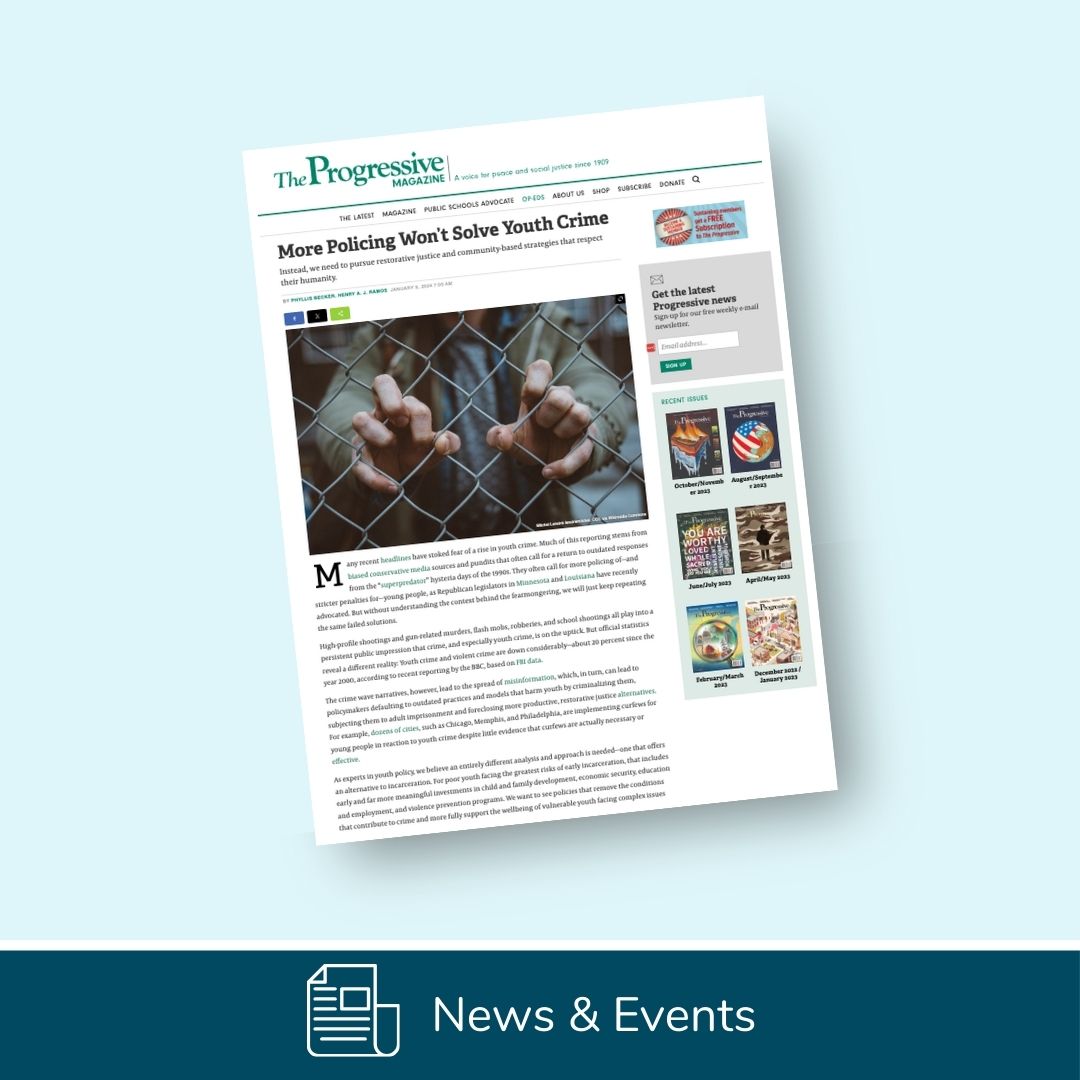
Alex Schneider is a senior manager on the Youth Justice Initiatives team at Columbia University’s Justice Lab, which is focused on ending the punitive youth prison model and investing in the communities hit hardest by youth incarceration. The Wellbeing Blueprint sat down with Alex to discuss his vision for the future of youth justice and meaningful actions anyone can take to push for real transformation.
Our vision for youth justice is that young people are supported in their communities so there’s no need for a justice system to take them out of their families, their communities or the places that they know. There’s an understanding among folks in youth justice, and there’s a lot of research, that incarcerating young people really doesn’t work. It doesn’t promote long-term safety in communities when people are taken away and locked up or even that they are punished. We’ve come to realize that the punishment paradigm, whether it’s incarceration, a fee, a fine or probation, doesn’t work in the long term. What works is people having the resources and the support that they need, within their community.
People are going to make mistakes, kids are going to do things that they regret and they’re going to harm other people at least in some small way. But in communities where there are a lot of resources, support and time, they can respond to young people’s behavior in a way that they can learn something and grow – that’s what creates safety. It goes without saying that the history of racism in this country has dictated which communities those are, that have resources.
What we have right now is justice by geography, where in some places justice looks like support and growth, and in others it is punishment. So the vision of youth justice in the future is having that for every community and every family across the country. The vision is to support and bolster families and the resources in communities so that young people from the very beginning have what they need to thrive and access wellbeing.
I mean, everything. The Columbia Justice Lab has a number of projects focused broadly on ending mass incarceration and envisioning a future for our country that doesn’t rely on punishment and incarceration to respond to issues and behaviors that we know are rooted in racism and a system that has oppressed and traumatized people for hundreds of years. We want to flip that and respond with wellbeing and healthy communities and support.
All of our projects broadly address those issues, but I work specifically in our youth justice initiatives where our vision is closing youth prisons. We need to understand the history and the underlying causes in the system we currently have in place, in order to understand the racial disparities we see, and we do that through a racial equity lens. It’s important that we start from the perspective of racial justice and racial equity. And we can address those disparities by centering young people, families and communities and their wellbeing.
I hope that people will engage within their own communities to understand what the justice system is like for a person under the age of 18. I know for me, I didn’t even know what department or government agency handled incarcerated youth in my area. So, do some research and see what’s happening. Because the more that people know, the more they can get engaged, locally and nationally, and help change those things. When we all start doing that, it bolsters advocacy from within the community so there’s pressure for systems to change and to do right by people.
As with a lot of the justice system, there’s a bit of an “out of sight, out of mind” mentality. In a lot of places, kids who are deemed dangerous get sent outside of the community and are sort of forgotten about. So if people can pay attention to them, then I hope we can start to change things.

Learn how FFI partnered with the City of New London and the Hispanic Alliance of Southeastern Connecticut on a wellbeing asset mapping project.

Full Frame Initiative was joined by Angela Cochran, Ohio START Caseworker in Trumbull County, Ohio and Mike Kenney with the Public Children Services Association of Ohio (PCSAO), who shared about their two-and-a-half-year journey toward centering community and co-creating a framework that is led by those most impacted.

FFI Senior Fellow Phyllis Becker, and Henry A. J. Ramos of The New School Institute on Race, Power and Political Economy explore how centering youth, families and communities creates more sustainable responses to crime.